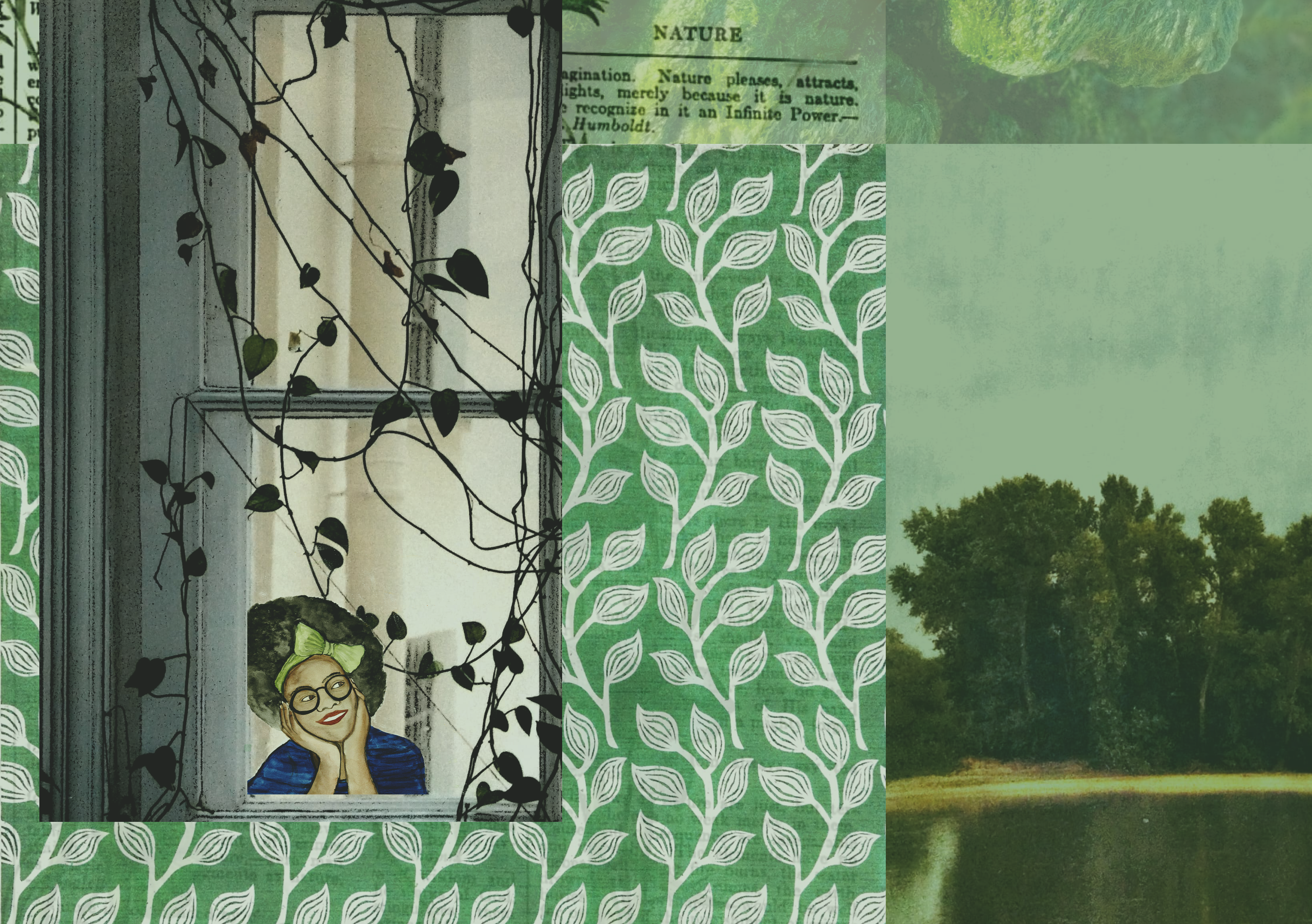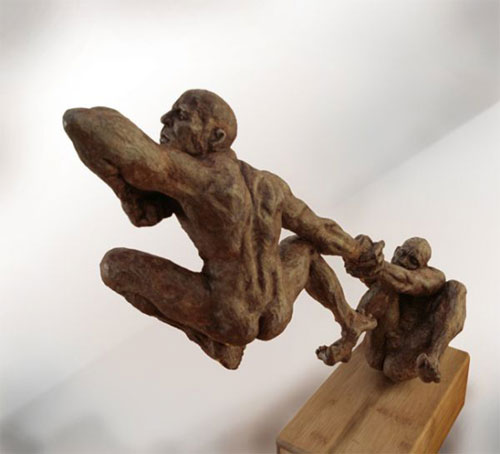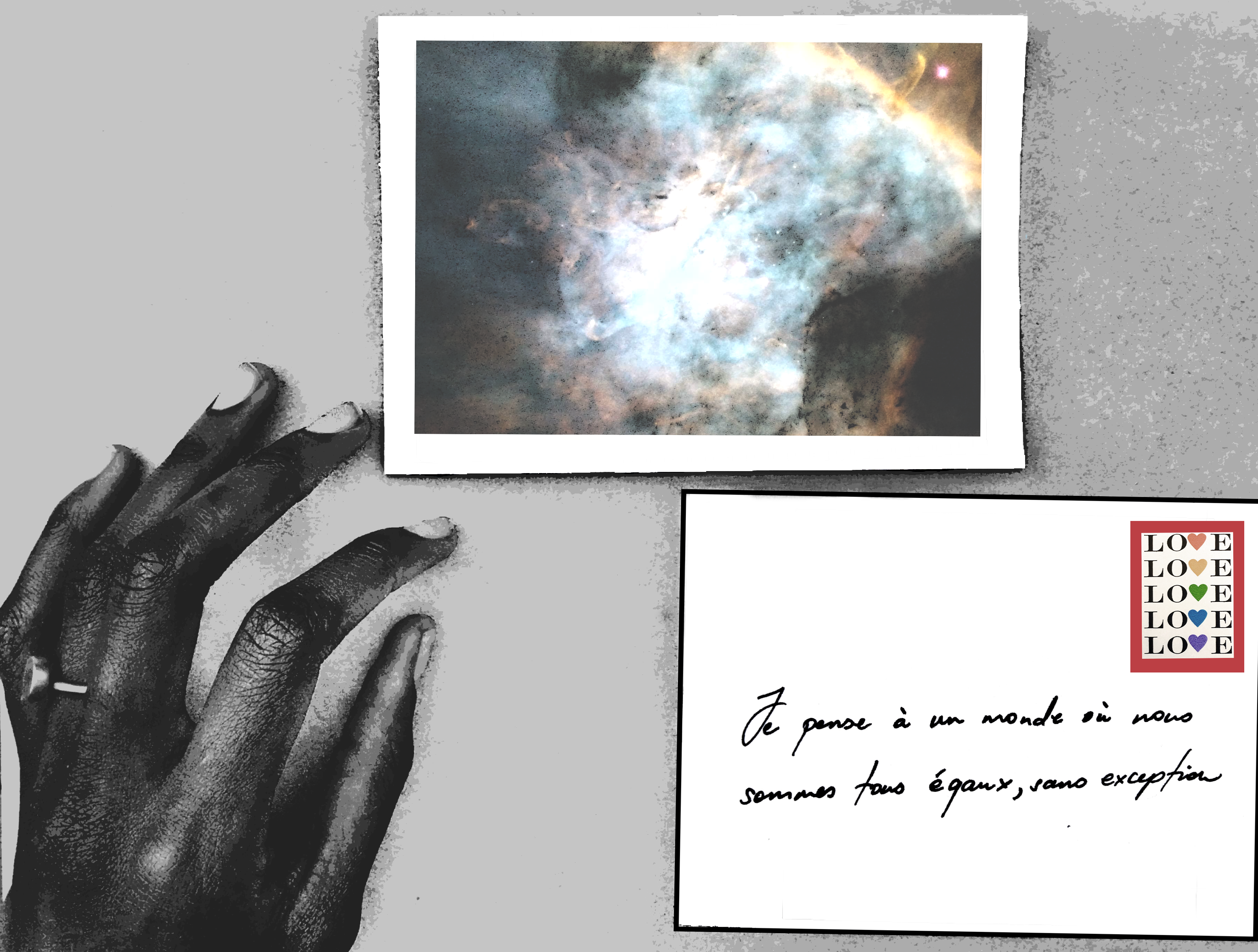Provisional Notes on Dying Here
By Wairimu Muriithi. Photos by Siphumeze Khundayi
Obituarised
There are many words for this single thing: stabbed shot clot suicide heart attack drowned cancer strangled hacked fell from a ninth-floor balcony starved immolated age decapitated stroke death announcement death and funeral announcement gone to glory dust to dust celebration of a life well-lived, etc. But you are not really dead until a tongue-pink death certificate is slid across the marble counter, and you sign it. Before the tongue-pink paper is the red line on the floor you step over when the person ahead of you leaves. Before the red line is a long death-queue on the inside of the building, and before that is a long, long death-queue on the outside. You are not dead until the government has allowed you to be dead.
Returning
When you have been back in line three or four times, you fall into the habit of calling them visits. You bring board games or a pack of cards or books to exchange and talk about with the people immediately in front of and behind you. You can’t eat or drink, obviously, but when you pack up, say your goodbyes, and leave at the end of the day, you are reminded of the days you spent with your cousins, when your mother would tell you you’re leaving and you know you have at least an hour left before you actually leave, but you have to put on your shoes and your sweater anyway.
Over here, your day starts when you join the queue and ends when you leave, with or without that tongue-pink paper. It then works out so that, in each little cluster in the line, everyone’s day starts and ends at roughly the same time.
Friends
Janet has been in the queue seven times before today. This is Kiragu’s twenty-first, and Perpetua’s thirtieth, two of which have been on the same life-day, a Tuesday. Rama stopped showing up after his twelfth rejection and decided there wasn’t anything particularly terrible about being a ghost forever. Kagure, who is four years old, is learning how to count from the number of times she has had to return – seventeen. Hassan and Betina come once every life-year, since nobody is in a hurry to bury them. Everybody knows they had only just gotten married when their bus driver fell asleep at the wheel, but nobody knows why they took so long to want to die. It’s been twelve years since their first visit, fifty-one since the crash that killed them.
Eventually, you begin to plan your visits here together, as a group. It gives you time to rest and flexibility to gather more evidence, and it’s easier to organize who’s bringing what the next time. Hassan and Betina always bring a copy of that year’s World Book of Records.
How did you get here?
Nobody but the death-clerk is going to ask you that, because no story, no matter how creative, is inherently new, and nobody expects the truth anyway. You might lie; in fact, it is probably wise to lie to anybody who asks you (unless you are Hassan and Betina, who never lie), just in case people decide your story bears more legitimacy than theirs and try to steal it, after which it inadvertently becomes a competition about who can make it sound the most convincing in the fewest visits possible, and the death-clerk looks at you like “That one I’ve already heard today, try again,” as if there can be only one way of dying per person.
Documented proof
Of course, even if someone does steal your story, it will only be useful to them starting from the next time they visit. The death-clerks want a doctor’s signature to confirm you really died of kidney failure, or a letter from your priest, who inevitably slips in his opinion on where in Heaven you will rank, if at all, for your philandering, or a police report stating you really were accosted and fatally dismembered by suspected criminals with pangas, or your birth certificate to prove you’re old enough to die of being old enough. For statistical purposes, you’re supposed to provide as much information relevant to state welfare as possible, such as the fact that the county hospital is understaffed and/or underequipped, or your priest prays for (and faithfully delivers, for a large fee) miracle babies for childless couples, or the criminals were really cops, (don’t be stupid enough to admit your birth certificate is a fake, even when they insist it is), but we are decades deep into the age of hate speech and treason, and you don’t want to prolong the process of your dying.
Silicon Valley but in Africa
If you don’t have official documentation or visible lacerations or mutilations on your person, get serious. Africa has risen, and your local politician will remind you that we were among the first to enter the age of smartphones, fibre optics, network-market investment, mobile money and tech hubs. It has been several years since the proud discovery that almost everyone in Kenya (74%!) used a cellphone, and cellphone quickly and necessarily became smartphone, so you should at least show up with undeniable visual proof that you’re dead. The clerk wants to see how deep the finger-impressions left in your neck are (and did you fight back?) or where you slipped and fell into the city floods (and why can’t you swim?) and was your body recovered, or can you at least describe what you smelled like when there was no more body left to burn or not enough body to recognize, because that picture is not sufficient, or how didn’t you know you had a growth? Look at the size of your stomach in this picture; you can’t even fit on the screen.
Proof
They always need more of it.
Speaking of
a risen Africa, the quickest way to keep track of the country’s most privileged class is via the dying process. This is where you will learn just how many most-honourables there are in your county alone, and then begin to count how many are mheshimiwa’s relatives or neighbours or former classmates or accountants or lawyers. Of course, they do not stand in line with you, and these are never “visits” for them, because they never come back. Theirs is the VIP queue, and before you ask, yes, there are people who have tried to speed their process along by standing in that queue, but if most-honourable did not send you here with a letter, you get blacklisted. You will never die.
Small mercies, shit mercies
Perhaps the only relief in this entire process is that we don’t need to piss and shit. We don’t sweat either. This place doesn’t smell like human.
There are tears though, at any given time, from at least a few people. When you first see them, you think it is only natural that we miss living, but then you learn, when yours come, that they are spontaneous and involuntary, and eventually you won’t even notice how often yours come, too.

A short story
I was eating a tangerine when my father died – I mean pre-died, that first instance of dying – in a plane crash in Cote d’Ivoire. He’s been swallowed by the sun, my aunt whispered to me by way of an explanation she thought suitable for a six-year-old. I did not miss him, for he had hardly ever been home. My mother’s grief was incomprehensible to me, and anyway, wasn’t landing on the sun the entire point of becoming a pilot? I remember sitting on her lap during the funeral and feeling her body heave when my aunt talked about how hard he worked so that my mother wouldn’t have to. I wanted her to stop crying, but she ignored my whispers, so I did the next logical thing: I stuck my tongue out to catch her tears, which I discovered I could not do without licking her face.
She did not even realize what I was doing for almost a whole minute. Softly, she covered my mouth with her hand. A month later, I was living with seven other children in my grandparents’ house at the coast, and my mother was working three jobs.
When I got into flight school in the South, she said to me in a voice made of stained glass, “When you are coming back, do not forget to bring me that tea your dad used to buy me.” Later, in a voice that made me think of stained glass cracking, she said, “I missed him at first, but I’ve missed you almost your whole life.” She did not speak about him again.
My first tears in the afterlife came just as I got to the front of the long, long death-queue on the outside. Out of habit, I stuck my tongue out to catch them. They didn’t taste like mine. They were my mother’s.
After all the things she’d known and done, I hadn’t meant to die before her. It was an accident.
Bureaucracy
is forever.
Sometimes, a death is apparently too complicated for the overworked and/or underpaid death-clerks or their outdated computer systems, and they can’t decide what to do. This is worse then a refusal, because they send you to the capital to die. I’ve never been, but I hear you have to go to seven offices before you even get clearance to go to the County Death Registry Office. And then you just stand in line – no games, no books, and it seems like all the city’s traffic sits outside the office, so you can’t even hold a decent conversation without losing your voice. Your voice is almost as important as your evidence.
History
Hassan and Betina are habitual. Around the time they are due for another annual visit, they call one of us to find out when our next visit is. Hassan brings a chair for himself. Betina prefers to stand the whole way, and she tap dances when she gets fidgety – she says she learned how on her first visit here, but won’t tell us how. They patiently wait for us to pour over the World Book of Records. They never ask for news because they know most things, and don’t care to know anymore. They introduce themselves to the newer members, and don’t ask about those who have left. Then they fall into the pattern of telling us the same things, as if it is the first time.
If you are here when they are here, you will learn that it was not always this way. The process of dying changes every time there is a new government, constitution or seemingly inconsequential law. When they died, for instance, only the living concerned themselves with death certificates, and there was only one place to get them. Sheria House houses stories of frustration, pickpockets, impatience, lust, tuberculosis, queue vendors, and – always – money. And always bureaucracy. The dead would hang around their bodies, just waiting, sometimes watching the news. Being dead was an easy business.
Ghosts
Some dead people, like Rama, give up all the time. But history has produced and hidden so much dying, in places without roads or hospitals or cellphone towers. There has been dying in places within the country’s borders that nobody can name, places that make no claims on belonging anywhere but to themselves. There has been dying that the government paid for, and then denied. There are bodies that have been stuck into the ground or burned into oblivion or otherwise disposed of, or not even disposed of. There is enough material to write several books on the journey towards death registration, but there are far, far more stories on death itself. This country is teeming with ghosts.
Once,
Kagure brought an egg with her. Her mother had bought it in a tray of twenty-nine others, but when she took it out for an omelet, she placed it on the counter and it wouldn’t stop rolling in tight little circles. Horrified, and still grieving her baby’s death and non-burial, she decided that was where Kagure’s ghost was hiding and put it aside. She needed to consult with her neighbour on the merits of freeing a not-yet spirit.
We watched the egg roll on the ground outside the Office, and wondered if there was really a ghost in it – obviously not Kagure’s, she was right here, but anyone else? – and how it got in there. Could we all live in eggs? Enough visits to this place make any alternative seem attractive. But what if someone dropped and broke the egg? What if someone wanted a boiled egg?
She did not return the egg. On our next visit, she told us her mother had fallen into a coma. We spent the rest of the queue wondering if souls on temporary leave had another space like ours, making cases for themselves to return to their bodies or to come here.
Connectivity
There is an intricate relationship between this space and machines in the living world. Socks that inexplicably disappear into washing machines’ bellies end up here, for when our feet and hands get cold. Printing presses occasionally hold back a few copies of whatever passes through them, and they get sent here too. When your air conditioning doesn’t seem to be strong enough on a hot day, it is because some of it is siphoned here, and heaters keep some of their warmth for us when July comes around. Music comes in from a different broken car radio every day.
It’s a relationship that has been years in the making. At first, it was because the government was completely unreliable about sending out death certificates to the living world once they had finally been issued to the people over here. For a country always boasting about its technological leaps and bounds, they still sent them through the post. Eventually, the cross-county Commission for the Interests of the Dead was formed. They found the place in cyberspace where emails frequently got lost, and established a connection that made sure death certificates were emailed. That way, as soon as you get your copy of the tongue-pink paper, a copy will be sent to your people over there. Of course, that means that you also cannot die if your people have no access to the Internet.
The Commission for the Interests of the Dead has done a good job, all things considered. It has been the only successful commission ever to be put together, perhaps in the entire history of the country. Naturally, given our life experiences with commissions, we had our doubts; life things fuck you over, and sometimes they spill over into here, but sometimes they do not. The Commission is what the Believers here call a blessing, and we don’t argue with them.
Bodies
Even after my father died, I thought we cheated by having a funeral without a body. My mother and I each put a photo of him in the casket. I did it because it never occurred to me to say no to her.
On a Monday morning in my second year of flight school, I walked past a rat immediately outside my hostel. It was splayed on its back, almost completely squashed flat by the cars that drove over it, and its head lay a few inches away from the rest of its body. Every day for the rest of the week, it got flatter and blacker. Its head disappeared, perhaps kicked away by one of the trainers’ children who played outside, but its body soon became a nearly imperceptible bump in the cabro-paving, distinguishable only by its darker shade. When I pointed it out to a friend later, he said he would not like his body to vanish in such a terrible, prolonged way. I asked him why it would matter, since he’d be dead anyway, and he said he imagined he’d feel the indignity even from wherever he ended up. I said, fuck dignity. He said, fuck dignity, and laughed. I hadn’t been trying to be funny, but he had just smoked a blunt.
I’d changed my mind about cheat-funerals long before that, but this conversation made me wonder if my father had also been squished into an imperceptible lump in some Ivorian wasteland.
History II
Eventually, bodies became unnecessary. Death became a lottery.
The story of Pat Kamish broke the news to the living about what the dead had already long known. Someone who worked at Sheria House saw his name in the death registry and mentioned it, in passing, to a friend. Kamish, the serial and infamously wealthy fraudster with a beautifully groomed goatee, had died without fanfare three weeks earlier.
Soon enough, the media picked it up, and the copy of the official death certificate was all the confirmation they needed. It is said that Kamish learned of his death while he was eating a bowl of cereal in his pyjamas on a Tuesday morning. His lover, a young, naked Turkish writer, choked on his coffee from the hilarity. He was already planning a novel on his trysts with a rich, dead Kenyan man until Kamish slapped the idea out of him and kicked him out of his house. By that afternoon, Kamish’s fat face filled every screen in the country, expressing outrage that his wife had cheated him, of all people, out of his own life and property.
Of course, everybody thought it funny until the news channels, scrambling to redeem themselves, found out how easy it was to kill somebody off. To keep up with the bulge of the middle class, insurance companies had spread like wildfire and Kenya’s death rates had soared. Each death cost a couple of text messages, one five-minute trip to Sheria House and a few thousand shillings a pop.
When the death registry was made public, very alive people were informed of their quiet deaths (and subsequent loss of property) while they were cleaning out their bathtubs, feeling for ripe avocados, or applying for credit cards Their children or their spouses or their siblings had filed life insurance claims, buried empty caskets and made off with the money. The middle class bulge grew. In the chaotic mess between fake death and real death, between forged government records and legitimised government murders (no, I don’t know what that means), dying became that much harder to do.
[Aside]
[There are houses here, too. They look like people, but their eyes are pure white – no irises, no pupils, no network of veins. They dance only to jazz music. You will want to know why they are here, but they do not speak to us, so you will learn to make up your own stories about them. Mine is that they were built on “road reserves,” and they wound up here because there were people inside them when they were demolished, and somehow the souls got mixed up. Janet simply thinks houses are people in different form. Janet used to write and illustrate children’s books.]
Magic words
- Devolution: government, taxes, love, money, land, marriage, corruption, death
- Promulgation: starting the old shit afresh
- Anti-terror: walls, spy on your neighbours, suspect behaviour, Kasarani
- Security: see “anti-terror”; also, a personal responsibility
- Middle-income: as in, make sure our middle-income economy takes a selfie
- Hashtag
- Development: to be used when all the other magic words do not apply; to be used with all the other magic words for extra credit
- African culture: the only valid argument against development; consult with your local politician for details on when and how it can be used.
This is how we really die.
History III
Some people remember this entire process from back when they could only go to one of three National Death Registry Offices in the country, but nobody has been around long enough to remember whose idea it was and when it first came about. Perhaps it has always been this way, or memories are not as far-reaching as we think they are. What these people do remember is that Death Registry Offices became all the more necessary after things changed in January 2008. It wasn’t the first post-election violence we knew, but it was the post-election violence, the one when important people noticed. That is when death certificates became the exclusive duty of the dead, in order to keep future numbers low enough to maintain our magic words, because the important people were watching. The agreed-upon figure in 2008 was 1,000 people, give or take a dozen or two. Anything too far above that was hate speech; anything too far below was denial. We can’t talk to the press, see. For the living, death certificates have become measures of believability.
Things changed again in 2010, when everything, including dying, was decentralised. I was still alive when that happened, but it does not take too much to imagine what the death-queues were like back then.
A shorter story
My mother was apprehensive about my becoming a pilot, understandably. That’s what makes my death underwhelming, even comical. I slipped, fell face-first into a fucking puddle, and drowned. I told you it was an accident.
Disclaimer
This isn’t a guidebook. This is my head. Almost everything I have told you here could be a lie. I got into the habit of making things up while flying at night. But I’ve been dead for quite a while now, so I’m bored, and I no longer know what is true and what is real and what isn’t. I don’t even know who you are, but you are a good listener, or you’re even more bored than I am… bored to death? Ha! Ok, sorry. Forget I said that. How good are you at chess?



